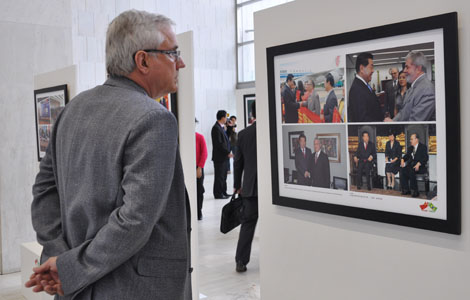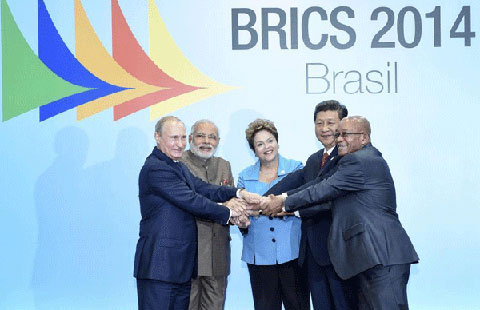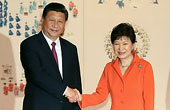Giving Chinese soccer a boost
Updated: 2014-06-23 03:08
By ZHANG FAN in Sao Paulo (China Daily Latin America)
Comments Print Mail Large Medium Small
The key to China's soccer team getting stronger is to have more people participate in the sport and let them compete internationally more often, said Bora Milutinovic in an interview with China Daily on June 21 in Sao Paulo, Brazil.
"China is a huge country with a large population and there are indeed many enthusiastic soccer fans, but there are not so many people playing soccer. That makes it difficult to select enough good players for a national team," said Milutinovic, who is more widely known as Milu in China.
Milu is the first and only coach to take China's national soccer team to the World Cup. China qualified for the first time for the 2002 FIFA World Cup on October 18, 2001, after 44 years of failed attempts.
"I have no secret for that because I simply did what I always do," said Milu, who is the only person in history to have led five national teams into the World Cup. "I had an excellent team, good Chinese coaches and good support. Entering the World Cup is a combination of many elements."
Under Milu's coaching, the Chinese team achieved 12 victories, one tie and one defeat in the elimination round of the 2002 World Cup. Though the team failed to make any goal in the formal games, it is still the best record in China's soccer history.
"I am sorry that we did not make a goal in that World Cup. We could have but our important player Sun Jihai was badly injured," said Milu.
Chinese President Xi Jinping said in a speech during an official visit to Mexico in 2013 that China only got in the World Cup once and that was when the team was being led by Milu, who also used to coach Mexico's national team.
"I have to say that these words deeply touched me," said Milu, "I never expected President Xi to say something like that."
President Xi, who calls himself "a soccer fan", also proposed three goals for China's soccer during his visit to Germany in 2014: entering the World Cup again, hosting a World Cup and winning a championship.
"If there is one country I like, it is China. So whenever China needs me, I will always be ready to help," Milu said.
It has been 12 years since Milu led a Chinese team. "Somehow today's China's team is not confident enough with themselves," said Milu. "As I've always said, attitude is everything. You cannot achieve your goal if you don't believe in yourself."
Milu went to China for the first time in 1977 for a match between China and Mexico. "China was so different then and it makes me feel even closer with it today because I know its past," he said.
With the whole country yearning for a breakthrough in soccer, many Chinese companies and associations are building soccer schools as a way to foster younger generations of talented soccer players.
Guangzhou Evergrande Soccer Club, supported by Evergrande Real Estate Group, invested about $160 million in 2013 to launch its own soccer school with more than 10,000 students. Luneng Group from Shandong province also built a soccer school 10 years ago and is now one of the largest soccer schools in China.
"Such soccer schools can actually help. But the people who train the students must be experienced. The coaches need to be good at discovering the potential of their students," said Milu.
He said young players also need to compete more with the world's professional teams — not just during the World Cup — because it is the best way for them to keep pace with the rest of the world.
"They might get beaten the first time, but they will be much better the next time. That's how they learn," Milu said.
Milu was invited to the 2014 FIFA World Cup as an advisor to Qatar Soccer Association, which will host the World Cup in 2022.
"I hope to see the Chinese team in the game then," said Milu.
fanzhang@chinadailyusa.com
 |
|
Soccer coach Bora Milutinovic, who led China's team to the World Cup in 2002, could help China get there again. Zhang Fan / China Daily |





